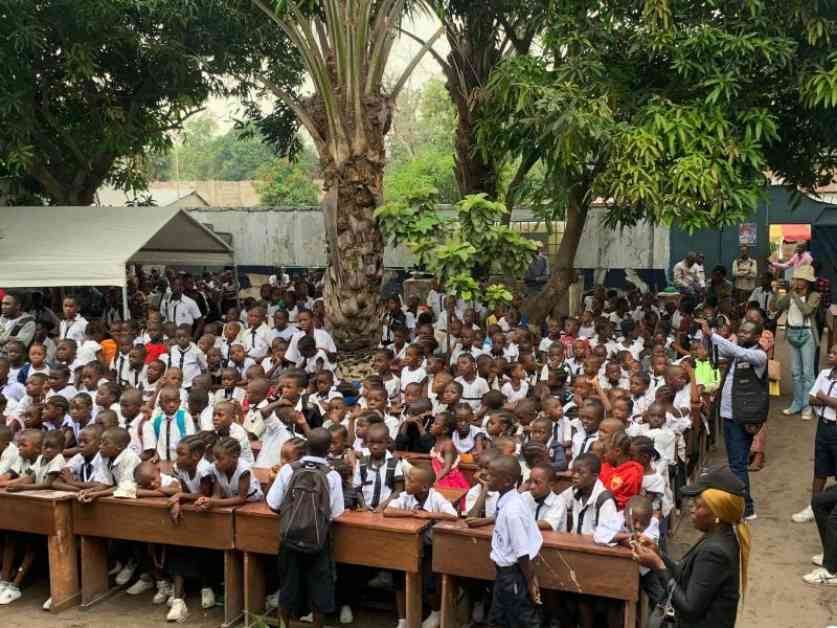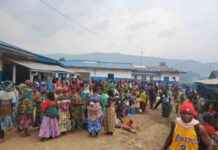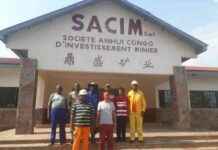The Ministry of National Education and New Citizenship chaired a meeting on Friday, February 7, 2025, to validate the roadmap for the development of the national school feeding strategy in the Democratic Republic of Congo. This meeting, the first of the year, was organized in collaboration with the World Food Programme (WFP) and aimed to draft and adopt a national school feeding strategy in the country.
During the meeting, the initial version of the roadmap was presented, and a drafting plan for the strategy was validated, including amendments and the validation of members of the intersectoral committee. Discussions led to adjustments to ensure the inclusion of all relevant aspects in the activities and clarity regarding the responsibilities of each stakeholder.
The Ministry of National Education, along with its partners, including the WFP, signed a memorandum of understanding to effectively support the development of the national school feeding strategy. The primary goal for the Ministry is to address regulatory issues and standardize the process of establishing school canteens within educational institutions.
Tracy Ntumba, advisor to the Minister of State for National Education and New Citizenship, emphasized the importance of establishing a clear guideline for school officials on how to organize school canteens. This ensures that all students have equal opportunities to access and remain in school.
Ntumba also highlighted that one of the ministry’s priorities is to ensure that school canteens are established in all schools across the country, aligning with the vision of the President of the Republic. This vision aims to provide all children, regardless of gender, origin, or tribe, with equal access to education.
Nafiou Issiaka, the head of the school feeding program at the WFP office in the DRC, expressed the organization’s commitment to supporting the Ministry of National Education and the government in this process. He commended the multisectoral committee for engaging various ministries in the school feeding program, emphasizing the need for a comprehensive strategy that considers all stakeholders and realities on the ground.
In a previous meeting of the Council of Ministers in October 2023, President Félix Tshisekedi emphasized the importance of establishing school canteens to enhance students’ concentration and success as part of ongoing educational reforms. This aligns with the recommendations from the joint review of the Education Sector Strategy (2025-2026) in September 2024, which highlighted the need to strengthen the legal framework and mobilize resources to expand the operational coverage of school canteens.
School canteens, integrated into the education and training sector strategy for 2016-2025, play a vital role in improving school attendance, students’ nutritional status, local economic development, and poverty reduction, especially when food products are sourced locally. They also contribute to promoting girls’ education, reducing gender disparities, and preventing children from being recruited into armed groups.
Despite joining the Global Coalition for School Feeding in July 2021 and making commitments in 2022, the Democratic Republic of Congo has yet to establish a national school feeding strategy. The multisectoral commission tasked with validating the roadmap for the development of this strategy has been actively working towards creating a comprehensive document that addresses the country’s specific needs and challenges.

















